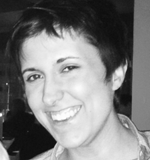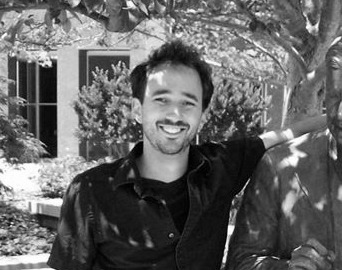
I have heard some folks (mostly older ones) remark that online dating is sham dating. The threat of rejection is mitigated in the act of establishing a digital persona. Additionally, like the ease with which one can submit many college applications these days (think the Common Application), it is not difficult to cast a wide net into the dating pool to the point where, statistically, one of the seeds is bound to sprout. This emergence of online personas and communities has had enormous implications for our world, and in this piece, I want to focus on what this shift has meant (and continues to mean) for the queer community.
Since we started with dating, let us consider what online dating means for trans* people, LGB people, and those who are interested in exploring relationships beyond the bounds of monogamy. There is a lot of room for improvement in these systems, particularly for trans* people, and I welcome any/all input from folks who wish to weigh-in on what we can, and must, do to move toward full inclusivity. That said, with proper filter settings in place while browsing OkCupid profiles in most metro areas, you will likely see photos of folks all along the gender spectrum. In their profiles, individuals can tell you more about who they are and what they are seeking. I view these spaces as sites of liberation.
If you find yourself outside of the hetero, cis- world that we have culturally dubbed “the norm,” why not set your mind to creating something altogether new, different, and (gasp) potentially improved upon? When you find yourself outside of the hetero, cis- world in the company of many other “deviants,” why not throw a party?
Some groups are doing just that.The Welcoming Committee [link no longer working] (TWC) is one of them.
In Boston, TWC hosts Guerrilla Queer Bar (GQB), which is the monthly bar “takeover” for the entire queer community, and the Flannel Takeover Company, which is a similar event that is advertised as being “for women.” Additionally, there are non-bar takeover events, including a trip to the Boston Symphony Orchestra, a sporty outing to Fenway to see the Red Sox play, a Spartan Race, a camping trip, and many others. The idea is simple: Create a listserv, advertise it to the queer community in the area, appoint a dedicated leadership team to work with venues and to choose outings, and then, when the details have been hashed out, send an email to the list telling everyone when to be where. In short, someone sends an email, and hundreds of queers descend on a typically straight space. The “usual” patrons are confused. The owners are thrilled at the business. The queers are together. The whole thing smells of this scene in Field of Dreams to me.
One thing is clear in this example: The internet has ensured that community organizing and mobilization will never be the same. Apart from the benefits our connectedness yields for event planning, we have so much access to information. We have so much access to one another. We each have access to communities filled with people “like us,” with shared interests, identities, and struggles. There are online support groups and discussion forums [Links no longer accessible]. In such spaces, folks who have previously felt isolated and alone can find their voices without necessarily identifying themselves. Their online personas can be the ones speaking. I think that this can be a really healthy and helpful activity – creating a persona that is apart from one’s persona IRL (in real life) – as it may create just the distance necessary for someone to feel safe to explore pieces of their identities that they may otherwise feel the need to attempt to suppress and ignore. For individuals with personal computers, they can gather information, make connections, establish relationships, and talk about their experiences from the comfort, safety, and privacy of their homes without ever having to identify themselves. It would seem virtually impossible (pun intended) to keep these personas (the digital persona and the persona IRL) entirely separate, for the persona IRL not to benefit from the solidarity and community found by the digital persona.
Last year, the University of Pittsburgh and Columbia Business School published a paper that demonstrated that some folks experience an increase in their self-esteem that is directly tied to their use of social media. When close friends “like” their contributions or express such in the comments, this group of individuals feels better about themselves. Perhaps more interestingly, the study found that, as a direct result of this increase in self-esteem, these individuals showed a decrease in self-control, which manifested both online and in their non-digital lives.
I want to consider what this may mean for the individuals whom we have been discussing. If, as I surmise, virtual accolades in online support groups and discussion forums have a similar impact on an individual’s self-esteem (the Pittsburgh and Columbia study looked mainly at Facebook use), what would it mean for this group to exhibit less self-control?
In the study, having less self-control correlated to having a higher body mass index and accruing more credit card debt. I am interested in exploring whether or not having less self-control could have positive implications. What does “control” mean for someone who may be policing aspects of their own gender identity, gender performance, sexual orientation, or sexual activity? What would having less self-control mean?
It seems possible that it could mean feeling compelled to make one’s persona IRL more align with one’s digital persona. This could mean feeling more confident when dressing in a way that frustrates the gender binary that we have constructed. This could mean introducing your same-sex partner as your partner and not your “friend.” This could mean speaking with a coworker about an insensitive comment that s/he made during a staff meeting. This could mean feeling compelled to organize to take action and to fight for equality and inclusion in the political realm. This could mean bringing our supportive community, comprised of anonymous digital personas that have been nurtured into confident individuals, together in the public realm. When we consider all of these potential implications, these intentional online communities, which people seek out and in which individuals freely opt to participate, are suddenly a growing social and political base.
In this way, these individuals enter the public eye as a force with which to be reckoned. Our systems of oppression begin to falter when the individuals whom we have intentionally marginalized and silenced organize and mobilize. In these online communities, they have found one another in a big way, they have connected with one another, and they are naming the bigotry that has rendered them “other” in our world.
I would be remiss if I failed to speak to the challenges and potential pitfalls of this. Having less self-control could have a negative impact on the individual, as that person may choose to engage in higher-risk activities. Additionally, there are people trolling the internet all the time – going out of their ways to attack people and ideas. They find these forums, and they write hurtful things and attack individuals in those communities (in all communities, truly). Their anonymity affords them the dark side of the same privilege that empowers the other individuals to come forward into these communities.
That said, even if we ignore individuals who do not belong to the community who commit such attacks, we have to acknowledge that sometimes (in some cases, oftentimes) the threat of harassment comes from within the community. Furthermore, sometimes these communities reinforce and ramp up insecurities – creating their own hierarchy of marginalized identities. Undoubtedly, folks deal with racism, sexism, classism, ableism, and ageism (and the list goes on, I am sure) in these communities. These communities are not perfect, and they could serve as a breeding ground for negativity, reinforcing problematic beliefs and practices, if they only aspire to mimic the hierarchical and patriarchal systems under which we live. If they aim to transcend those, the result could be transformative and have a greater impact than I think anyone can realize in this moment.
These intentional online communities hold so much promise, but we need to utilize them effectively and carefully. We need to remember that, when we create spaces that draw from a geographical region without bounds, people are coming (literally and figuratively) from very different places. We need to be patient with one another and be sure that these are serving as sites of non-judgmental education. It is a difficult, potentially impossible, task to get such a large group of diverse people on the same page – and doing so is not always the point. We will need to realize the ways in which our differences can make us a stronger body, while simultaneously acknowledging that some differences have to be sites for education. Knowing the difference requires a good deal of wisdom.
It is 2014. We can scroll through reams of online dating profiles for folks seeking queer relationships. We will see a wide range of gender performances in their photos, and our minds will be opened by the types of relationships that people are seeking. We may show up to a random bar on Friday night with several hundred queer people, prepared to have our presence felt and our dancing shoes put to work. This work can be so fun. This work can be so challenging. This work is waiting at our fingertips.


